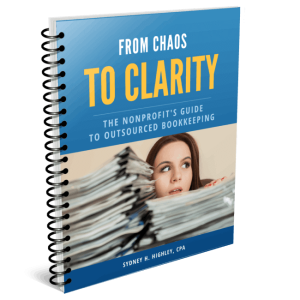
What You Need to Know About Nonprofit Accounting Technology in 99 Words
Navigating nonprofit accounting technology can transform your organization’s financial management. It’s not just about crunching numbers; it’s about empowering your team with tools that streamline processes and boost transparency. Look for software that integrates donor management, simplifies fund accounting, and offers robust reporting features. With the right technology, you’ll save time, reduce errors, and focus more on your mission. Investing in the right tools isn’t just smart—it’s essential for driving your nonprofit’s success and ensuring every dollar makes a difference.
Want more? Keep reading…
Table of Contents
ToggleKey Features of Nonprofit Accounting Technology
When managing your nonprofit’s finances, the right accounting technology can make a difference. Here are essential features to look for in accounting software tailored for nonprofits:
Donor Management Integration
One of the standout features of nonprofit accounting technology is donor management. This feature helps you keep track of donations, manage donor relationships, and streamline your fundraising efforts.
Good software allows you to track donor information, donation history, and communication preferences. This means you can quickly generate reports on donor activity, personalize your outreach, and build stronger relationships with your supporters. This integration not only saves time but also helps you cultivate donor loyalty.
Fund Accounting
Fund accounting is crucial for nonprofits as it helps you track and manage funds designated for specific purposes. Unlike traditional accounting, which focuses on overall financial health, fund accounting breaks down your finances by individual funds or projects.
This way, you can quickly see how much is spent in each area and ensure that restricted funds are used as intended. Look for software to set up multiple fund accounts, track expenses against each fund, and generate detailed reports on fund activity.
Reporting & Analytics
Comprehensive reporting capabilities are a must-have. Nonprofit accounting technology should offer robust reporting tools that allow you to generate financial statements, track budgets, and analyze performance. Reports should be customizable so you can view your data in a way that makes sense for your organization.
With powerful analytics, you can make informed decisions, monitor financial health, and ensure you’re on track to meet your goals.
Compliance & Audit Trails
Maintaining compliance with regulatory requirements is a top priority for nonprofits. Your accounting software should include features that help you comply with accounting standards and prepare for audits.
Look for accounting tools that offer audit trails, which track changes and updates made to financial records. This transparency helps maintain accurate records and provides accountability in case of discrepancies.
7 Ways Nonprofit Accounting Technology Improves Efficiency
Implementing the right accounting technology can significantly enhance the efficiency of your nonprofit’s financial operations. Here’s how:
- Streamlines Financial Processes – Technology simplifies tasks like bookkeeping, budgeting, and financial reporting, reducing manual effort and minimizing errors. Automated systems generate invoices, categorize expenses, and track income, freeing up time for more strategic activities.
- Saves Time With Automation – Automation features like automatic bank feeds, recurring transactions, and batch processing reduce time spent on financial tasks. Alerts and reminders ensure critical deadlines, such as tax filings and report submissions, are never missed, allowing staff to focus on mission-driven work.
- Provides Access to Real-Time Data – Cloud-based accounting software allows access to financial data from anywhere, anytime. This ensures up-to-date insights, helping with expense tracking and informed decision-making. Real-time data also enhances team collaboration by keeping everyone aligned.
- Improves Financial Accuracy – Automated data entry and reconciliation significantly reduce human errors, improving the accuracy of financial records and minimizing costly mistakes.
- Enhances Reporting Capabilities – Nonprofit accounting software generates detailed financial reports quickly, making it easier to analyze trends, create projections, and demonstrate financial health to stakeholders and donors.
- Facilitates Compliance and Audit Preparations – Integrated systems help ensure regulatory compliance by maintaining organized records and providing easy access to financial information, simplifying audit preparation.
- Enhances Resource Allocation – With enhanced visibility into your financial position, technology helps allocate funds more efficiently, ensuring that resources are directed toward areas with the highest impact.
How to Choose the Right Nonprofit Accounting Technology for Your Organization
Selecting the right accounting technology for your nonprofit involves careful consideration. Here are some tips to help you choose the best solution:
Assess Your Needs
Start by evaluating your organization’s specific needs. Consider your organization’s size, the complexity of your financial operations, and the features that are most important to you.
Whether you need advanced fund accounting, donor management, or reporting capabilities, ensure your chosen software aligns with your requirements.
Consider Scalability
As your nonprofit grows, your accounting needs may change. Choose technology that can scale with your organization. Look for flexible software that can accommodate additional features or users as needed. Scalability ensures that your technology investment remains valuable in the long run.
Evaluate Cost-Effectiveness
Budget is always a consideration for nonprofits. Compare the costs of different software options and evaluate what you get for your investment. Look for solutions that offer a good balance between features and cost.
Some software providers offer discounts or special pricing for nonprofits, so explore these options.
Look for Ease of Use
Finally, choose user-friendly accounting technology. The software should be intuitive and easy to navigate, even for those who may not have a background in accounting. A user-friendly interface reduces the learning curve and ensures your team can quickly adopt and benefit from the technology.
Final Thoughts
Nonprofit accounting technology is a powerful tool that can significantly enhance your financial management practices. Investing in the right technology is not just about keeping up with the times—it’s about empowering your nonprofit to impact your community significantly.
Contact Daily Balance today so you can leverage access to nonprofit accounting technology to optimize efficiency and meet your mission-focused goals.
Nonprofit Resources

About the Author
Syd Highley is a CPA and Managing Principal of Daily Balance, a nonprofit accounting firm located in Sacramento, CA. Offering virtual nonprofit bookkeeping services that take the place of an in-house accounting department, with the added benefits of financial audit representation and virtual CFO services, Highley empowers nonprofits to focus on their missions while saving up to 40% in accounting costs.






